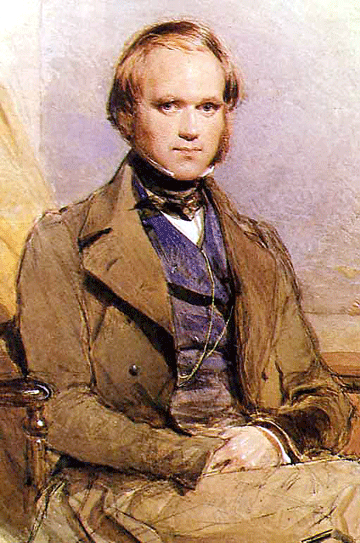By Doug Nichols
Berthoud Recorder
Feb. 12, 2009, was the 200th anniversary of the birth of Charles Darwin, the English naturalist whose most famous publication, “On the Origin of Species,” revolutionized the sciences of biology and paleontology. It was first published in 1859, so this year is the 150th anniversary of that landmark book. Its full title is “On the Origin of Species by Means of Natural Selection, or the Preservation of Favoured Races in the Struggle for Life.” In it, Darwin proposed natural selection as the process through which evolution occurs. He also wrote other books on such diverse topics as geology and natural history, coral reefs, orchids, insectivorous plants, barnacles, and worms.
Young Charles initially trained to be a medical doctor, but such studies held little interest for him; he much preferred riding, shooting, and collecting beetles. In 1831 he joined the scientific sailing ship H.M.S. Beagle as a naturalist and began an epic five-year, around-the-world voyage that would set the direction for the rest of his life and would eventually change our understanding of the natural world. The essence of Darwin’s greatest observation is the unity of all life — that all living things have evolved through time through natural selection. Evolution simply means change through time, and natural selection is the way in which such change takes place.
Natural selection operates through the survival and reproductive success of organisms with favorable traits or characteristics that can be passed on to successive generations of offspring. In time, favorable characters become more common among members of a certain species, while unfavorable characters decrease in later generations. Eventually such organisms change to the extent that they are recognized as new species. Artificial selection can be seen today in animal breeding. Unfortunately for us today, natural selection operates rather quickly on microscopic organisms that cause disease, resulting in the development of new, more virulent strains. This can happen when infectious diseases are treated with antibiotics but not all the germs are destroyed (perhaps because patients did not finish taking the prescription). Germs able to survive because of even minor traits of resistance can pass on those traits, and later generations eventually become immune to the medicines.
Despite overwhelming evidence in support (for example, fossil records amply exhibit the results of evolution), some people still question what they call the “theory of evolution,” as if it were just speculation. Actually, in science, theories are well-tested bodies of knowledge that explain and predict phenomena of nature. As for evolution, it is a fundamental fact of life, easily observable and well accepted by scientists everywhere. Natural selection, which explains how evolution operates, is now understood to function through genetics (a science not developed until after Darwin’s time), whereby advantageous characteristics can be inherited. The renowned evolutionary biologist Theodosius Dobzhansky stated, “Nothing in biology makes sense except in the light of evolution.” We can thank Charles Darwin for his insight and for thorough documentation in support of his discovery.
Doug Nichols is a scientist emeritus with the U.S. Geological Survey and a research associate with the Denver Museum of Nature & Science. He is a resident of Berthoud. Send comments to Recorder.Science.Guy@gmail.com.

<p><span style=”font-size: small;”><span style=”font-family: arial,helvetica,sans-serif;”>Feb. 12, 2009, was the 200th anniversary of the birth of Charles Darwin.</span></span></p>
 Print This Post
Print This Post






